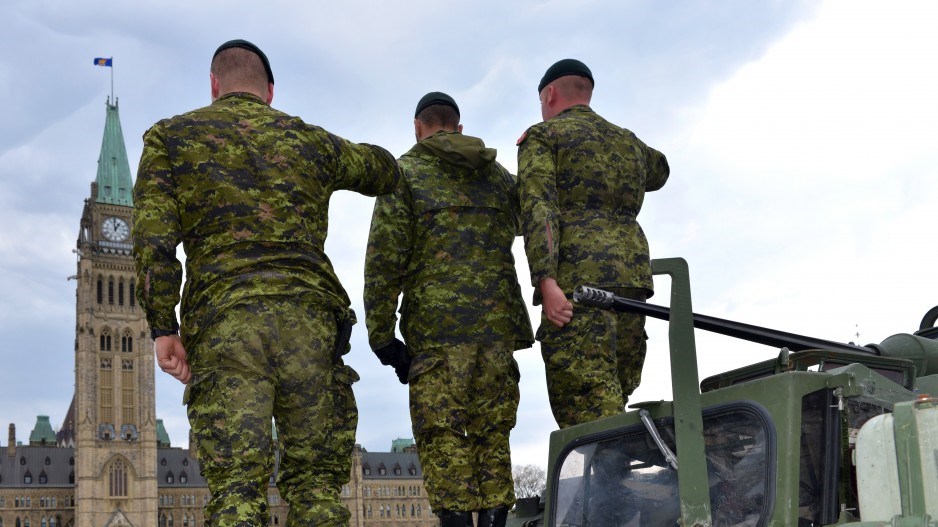In the immediate aftermath of the 9/11 terrorist attacks in the United States, it became clear that Canada would play some role in what was yet to be described officially as the “War on Terrorism.” As our neighbouring nation mourned the lives of almost 3,000 people, Canada welcomed American flights and pondered the next steps.
In the end, Canadian soldiers did take part in the mission that began in late 2001 and ended in 2014. The war mobilized more than 40,000 members of the Canadian Armed Forces, leading to the deaths of 158 Canadian soldiers and seven Canadian civilians.
Some observers point to the disruption of the al-Qaeda terrorist network and the removal of the Taliban from power as victories in the Afghanistan military effort. Others have argued that neither of the two groups was eradicated. The country that was supposed to be liberated remains far from stability.
Almost two decades have passed since the attacks, and Canada’s participation in Afghanistan is in the spotlight again for an unexpected reason. Peter Navarro, currently working as a trade adviser for U.S. President Donald Trump, made some surprising remarks to reporter Jim Sciutto that were published in his book The Madman Theory.
“Were they [Canada] doing us [the United States] a favour, or were they brought into the idea they needed to do that as part of the global effort against terrorists?” Navarro asks Sciutto in an interview.
While his words were part of a broader rant about Canada, there is no easy way to counter Navarro’s assertion without properly analyzing two issues: timing and national pride.
I had the opportunity to track the views of Canadians on the war effort in Afghanistan for a few years, and the surveys outlined a public that was at times confused and irritated. In early 2008, the benevolence of Canadians gave way to dismay, partially due to the well-documented behaviour of U.S. forces in Iraq. The numbers trended upward slightly after U.S. President George W. Bush was supplanted by Barack Obama, but there was never a survey I conducted where a sizable proportion of Canadians outlined a clear understanding of the mission or endorsed the decision to take part in it.
Part of the reason for these numbers is that Canadians were not as zealous about their participation in this military endeavour as Americans. The armed forces remain a source of pride for 74% of Canadians, but there is a nuance in our conduct that is not present in the United States. This would be difficult for a person like Navarro – currently providing his services to the most “with us or against us” American president in history – to appropriately grasp.
This month, Research Co. and Glacier Media asked Canadians to look back on the Afghanistan mission. As was the case earlier this century, we are nowhere near unanimity. While 39% of Canadians think Canada did the right thing by sending in military forces to Afghanistan, 43% consider the decision a mistake.
Men are more likely to believe that Canada’s participation in Afghanistan was the correct course of action (42%), along with a majority of Canadians aged 55 and over (51%). Conversely, those aged 18 to 34 are more likely to believe sending troops to Afghanistan was a mistake (53%).
The presence of Canadian troops in Afghanistan began under the government of Jean Chrétien and continued during the tenures of both Paul Martin and Stephen Harper. Canadians who voted for the Conservative Party of Canada in the 2019 federal election are more likely to endorse Canada’s participation in this military effort (47%) than those who cast ballots for the Liberal Party of Canada (40%) and the New Democratic Party (NDP) (also 40%).
When Canadians are asked about the information that three different federal governments provided on Afghanistan, the results are not stellar. Almost two in five (38%) say Chrétien’s government spoke “too little” about the mission. More Canadians feel the same way about Martin (41%) and Harper (46%).
As expected, criticism on the communications front is harsher from Liberal voters towards Harper, with 51% of them saying his government provided “too little” information on Afghanistan. Conservative voters return the favour to the two Liberal heads of government, with 44% and 43%, respectively, feeling that Martin and Chrétien were too secretive.
The difficulties in adequately discussing the mission are also evident in a separate question. Almost half of Canadians (46%) say they do not have a clear idea of what the war in Afghanistan was about, almost 19 years after it began.
On Afghanistan, we appear to be as confused and irritated as we were in 2008. A majority of Canadians do not understand what the conflict sought to achieve, and feel information was insufficient. Unlike Bush, our past three prime ministers did not have to make the war on terrorism the cornerstone of their tenures. It is misguided for current White House operatives to suggest that they should have.
Mario Canseco is the president of Research Co.
Results are based on an online study conducted from August 21 to August 23 among 1,000 adults in Canada. The data has been statistically weighted according to Canadian census figures for age, gender and region in Canada. The margin of error – which measures sample variability – is plus or minus 3.1 percentage points, 19 times out of 20.




